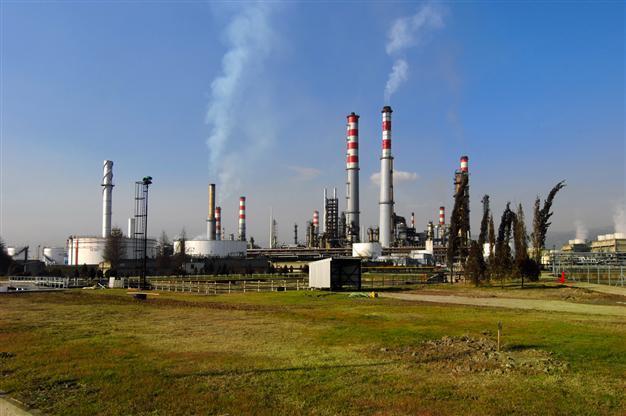Koç Holding records 49 percent profit jump with real estate sale
ISTANBUL

Koç subsidiary Tüpraş’s profit has also hoisted the group’s second quarter profit, soaring by 160 percent.
Turkey’s largest company Koç Holding’s second-quarter net income has risen to 49 percent, 872.4 million Turkish Liras ($400.5 million), due to a boost from a one-time real estate sale.The company’s income has been beefed up by the 299 million-lira extra revenue collected from the sale of a property as part of the Veliefendi real estate project.
According to figures filed to the Public Disclosure Platform (KAP), Koç’s net profit declined by 2 percent compared to the same period last year, when the one-time revenue is excluded. The holding’s second-quarter profit had realized as 586.4 million liras in 2013.
The company had agreed with Istanbul’s Housing Master Plan Enterprise (KİPTAŞ) to develop the 486-housed Istanbul Veliefendi project on the land of the holding’s old Bozkurt textile factory in 2011.
Thanks to eye-catching increase in the second quarter, the group’s net profit reached 1.4 billion liras with a 38 percent annual rise for the first half of the year.
A remarkable jump in Koç subsidiary Tüpraş’s profit has also hoisted the group’s second quarter profit.
The net profit of Turkey’s sole oil refinery soared by 160 percent to 357.7 million liras ($165 million) in the second quarter, thanks to the effects of the currency rate and deferred tax revenue from the Fuel Oil Transformation project, the company had said this week.
Yapı Kredi losses
However, a decline by approximately one–third in the group’s bank Yapı Kredi, had pressured the second quarter profits.
Yapı Kredi’s net profit plunged by 31 percent on an annual basis and became 484.2 million liras in the second period. Despite a slight recovery in the second quarter, Turkish lenders have recorded falling profits for the first half of the year due to an increase in interest rates, as well as limitations on credit card and loan spending.
While the Central Bank’s massive hike greatly reduced the high demand for loans, the banking watchdog’s regulations curbed the demand for credit card usage and borrowing loans by restricting installment payments on several goods and lifting loan amounts with the aim of reducing domestic spending that led to a rise in imports.
Meanwhile, the group’s arms in the automotive sector recorded mixed results for the period.
While Ford Otosan, a partnership between Ford Motor and Koç, said its net profit fell 41.8 percent year-on-year to 150.9 million Liras, Koç’s other auto firm, which is its partnership with Italian Fiat, managed to post a 23.3 percent rise in the second-quarter net profit to 134.7 million liras.
















